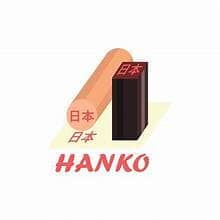When it comes to certified Japanese translations, have you ever wondered if your documents need a signature or a hanko stamp for validation?

Let's dive into this question, unravel some terminology, and offer guidance to ensure your documents meet the required standards.
Understanding Certification and Validation
Before addressing the signature versus hanko debate, let's clarify a couple of key terms.
A Statement of Certification is essential to certified translation. It's a formal declaration by a translator or translation company, affirming the accuracy of their translation work. This statement is what elevates a regular translation to a certified status, making it acceptable to official and governmental organizations.
A hanko, on the other hand, is a traditional Japanese stamp or seal. It's not just any stamp; it holds significant weight in verifying the authenticity of documents in Japan and other parts of Asia.
Signature or Hanko: What’s the Verdict?
The choice between using a signature or a hanko on the Statement of Certification largely depends on where your document will be submitted. In Western contexts, a signature is the norm—a simple sign-off by the authorized representative of the translation company will do. In Asia, and particularly in Japan, a hanko stamp is often the preferred method for authenticating official documents.
It's worth noting that there are various types of hanko, but for your certified translation, ensure the translation entity uses their official hanko registered with the Japanese Ministry of Justice.
When in Doubt, Ask
If you're feeling unsure about which form of validation is required for your situation, there's one golden rule:
Verify this requirement at the organization level where you'll be submitting your documents.
They're the ultimate arbitrators of what's acceptable, and following their guidelines will save you time and trouble.
Remember, while translation companies may offer advice, they're experts in language, not in the specific requirements of every organization that might evaluate your documents.
Need More Help?
If you're navigating the complexities of certified Japanese translations and find yourself with more questions we're here to ensure your documents meet the necessary standards - don't hesitate to reach out to Certified Translation Services Japanese to English
